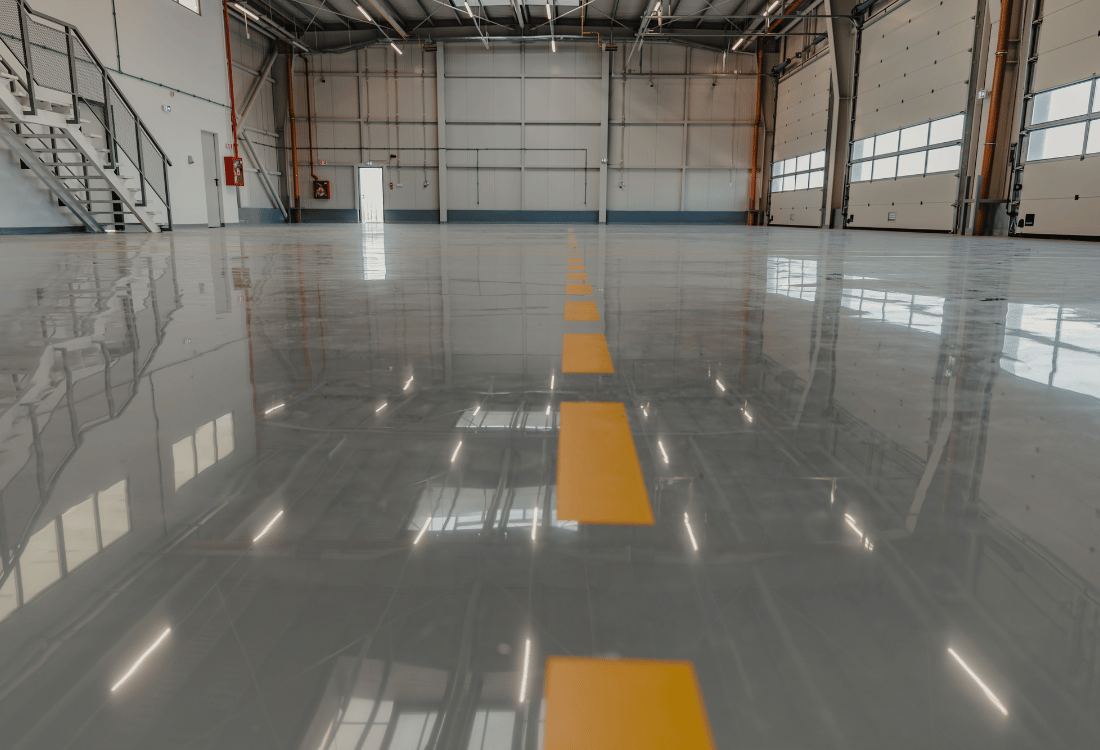
How To Choose The Right Industrial Epoxy Resin Floor Coating Solution For Your Business
An industrial epoxy resin floor is an excellent choice for many types of premises, offering superior durability, impact resistance, and ease of cleaning, without compromising on appearance. Choosing the right flooring solution for your business, however, can be challenging, as several factors will affect your decision.
While cost is a key consideration, it’s vital to take into account which floor coating is most suited to your industry, whether you have any unique requirements, and the condition of your existing floor, so you can choose the solution that offers the best cost-effectiveness, longevity, and safety.
Which Epoxy Resin Floor Is Best Suited To Your Industry?
Firstly, when considering which industrial epoxy resin flooring is most suited to your business, you should think about the environment in which it will be laid. Epoxy resin floors are incredibly adaptable and therefore are used widely in diverse locations, but how the working space is used should influence your decision. Sterile environments, for example, need to be easy to clean, so the floor must be resistant to disinfectants, while production facilities that handle acids benefit from surface coatings that are undamaged by splashes or spillages.
Industry-specific guidelines may affect your choice of epoxy resin floor, particularly if a recommended floor type enables you to discharge your health and safety responsibilities thoroughly. Also, consider the type and volume of traffic that the floor will be subjected to. In warehouses, for instance, vehicles such as forklifts will expose the surface to constant heavy wear, so an epoxy resin coating will provide the robust, durable surface necessary.
What Are Your Unique Requirements?
While epoxy resin floor coatings tend to offer the same benefits wherever they are laid, many businesses have specific requirements that must be considered when choosing the surface. Anti-skid coatings are necessary in environments that are likely to become wet, to protect the safety of employees and visitors from slips. Coatings that resist heavy traffic in warehouses can provide longevity, while different surface finishes help resist damage from scratches and indentations, and the accumulation of mould or moisture.
What Is The Condition Of Your Existing Floor?
Epoxy resin coatings can be applied to a variety of floor substrates, including stone, poured concrete, and wood, but it’s important to ensure the substrate is in prime condition to support a consistent resin layer once applied. Epoxy resin won’t bond well to some materials, such as polyethylene and polypropylene, while damaged or uneven sections could prevent the resin from bonding in the long-term.
How thoroughly you prepare the substrate depends partly on the planned usage of the space. Heavy footfall, trolley, or vehicle traffic, such as in a warehouse, requires adequate surface preparation to ensure the epoxy resin remains bonded to the concrete. However, a thin coating, applied in an area that receives low footfall (such as a storage area), only requires the substrate to be clean and dry.
Choosing Industrial Resin Flooring Contractors for Your Project
Choosing a professional contractor who can lay the epoxy resin floor is central to a high quality, durable installation. At Central Flooring, we specialise in tailored solutions to provide high quality resin floor coatings that meet your unique business needs rather than opting for a generic solution that doesn’t work for you.
Why not book a free site survey to find out how our specialists can provide your business with the epoxy resin flooring solution it needs?
Call us on 0116 275 0315, or request a free quote.


